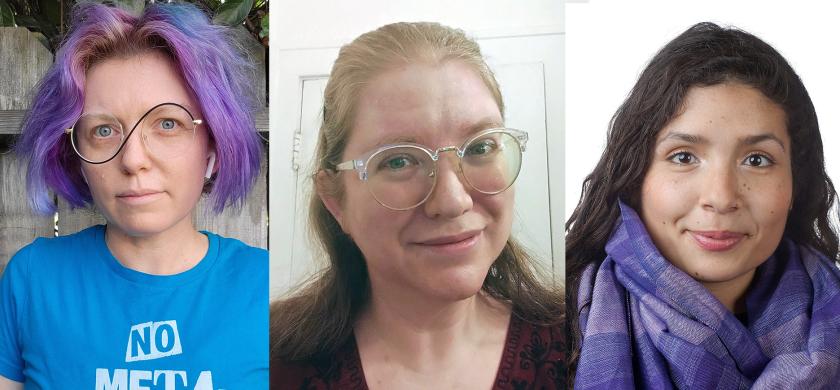As the tragic scenes of war in the Ukraine unfold on TV, computer, and cellphone screens across the world, people wonder what they can do to help the besieged country. iSchool alumni are among those working to make a difference by capturing Ukrainian museum and library websites, digital exhibits, text corpora, and open access publications in order to preserve Ukraine's cultural heritage. Quinn Dombrowski (MSLIS '09), academic technology specialist in the Library and the Division of Literatures, Cultures, and Languages at Stanford University, is co-organizing the initiative Saving Ukrainian Cultural Heritage Online (SUCHO) with Anna Kijas of Tufts University and Sebastian Majstorovic of the Austrian Center for Digital Humanities and Cultural Heritage.
"The problem is that, while we may not think of it this way, the internet ultimately comes down to physical things that exist in the real world—like servers and cables," said Dombrowski. "A lot of cultural heritage institutions (libraries, archives, and museums) have invested a lot of time and resources in developing their websites, many of which include digitized collections (scans of manuscripts and documents, 3D models, virtual tours) or even just catalogs of their holdings."
According to Dombrowski, SUCHO has taken a multi-pronged approach to web capture: submitting more detailed manifests of URLs to the Wayback Machine to ensure better coverage, gathering data and files from major collections and adding them to an Internet Archive collection for easier discovery, and creating high-fidelity web archive files that can be "played back" in a browser as if they were a live site, using the open source software WebRecorder.net.

Dena Strong (MSLIS '14), senior information design specialist at the University of Illinois, jumped at the chance to get involved in SUCHO and now serves as its community engagement coordinator. She is one of over 1,300 volunteers from around twenty time zones involved in the effort. Like Strong, volunteers don't need to read Cyrillic; they just need to be willing to serve.
"Once we get through the bulk data ingest, there's going to be a lot of cataloging and metadata work to do on what's shaping up to be terabytes—if not petabytes—of material," she said. "There are a lot of sites that have to be manually recorded by a human being. Because of hacking, a lot of sites have added bot-proofing technology, so we need people to go to individual sites and turn on a web recorder and scroll around the sites for captures to happen. We also need people to run site mappers to generate URLs to give to the Internet Archive for capturing—there are a thousand ways to help, which is why I'm glad we've got a thousand volunteers and counting!"
Assistant Professor Zoe LeBlanc is involved in the initiative, helping to "crawl and scrape" sites, add to tutorials and documentation on the SUCHO site, and organize publications "to make sure that processes that have been developed during SUCHO get preserved for future crises."
"SUCHO truly represents the best of digital humanities, where people from all over the world are coming together to try and preserve as much of this cultural heritage as possible and, in the process, also building and refining new tools and processes for caring and curating digital materials," she said.
Thanks to SUCHO, websites for cultural organizations such as the National Museum of Ukrainian Folk Decorative Art, Ivano-Frankivsk Center City Children's Library, and Kharkiv's National Academic Theater of Opera and Ballet can be preserved in this time of conflict and uncertainty.
"There's nothing I could do from this side of the ocean to help the people on the ground save lives and artifacts and buildings and history. But Notre Dame is being rebuilt from 3D scans taken by an art historian. Maybe something we're backing up today can be used for a purpose like that," said Strong. "In the meantime, the people who are there on the ground can focus on keeping themselves and their historic treasures safe, knowing we're taking care of the digital infrastructure for them."
Added Dombrowski, "It's a funny project, insofar as the best outcome for us is for all of this to be unnecessary. We want these servers, and the people who take care of them and their contents, to emerge unscathed from this war. But we want to have these archives just in case, to help the Ukrainian librarians, archivists, and curators rebuild when the time comes."
Dombrowski, who credits the iSchool with teaching her everything she knows about metadata, was recently featured by ABC News Australia for her work with SUCHO.
SUCHO has been funded by emergency grants from the Association for Computers and the Humanities (ACH) and the European Association for Digital Humanities (EADH) and has received service credits and technical support from Amazon Web Services. To learn more or get involved with the initiative, visit sucho.org.